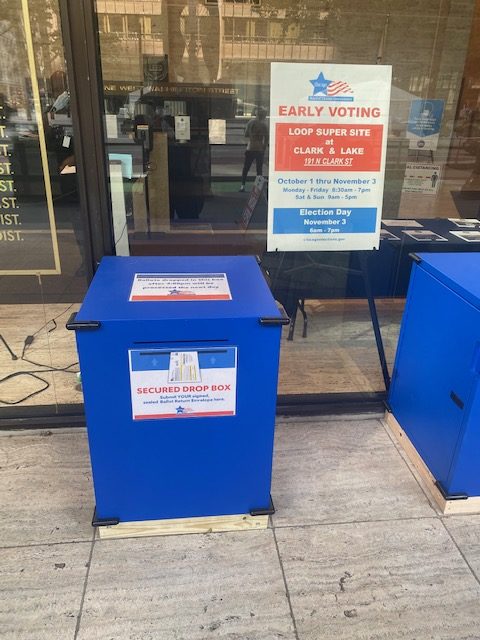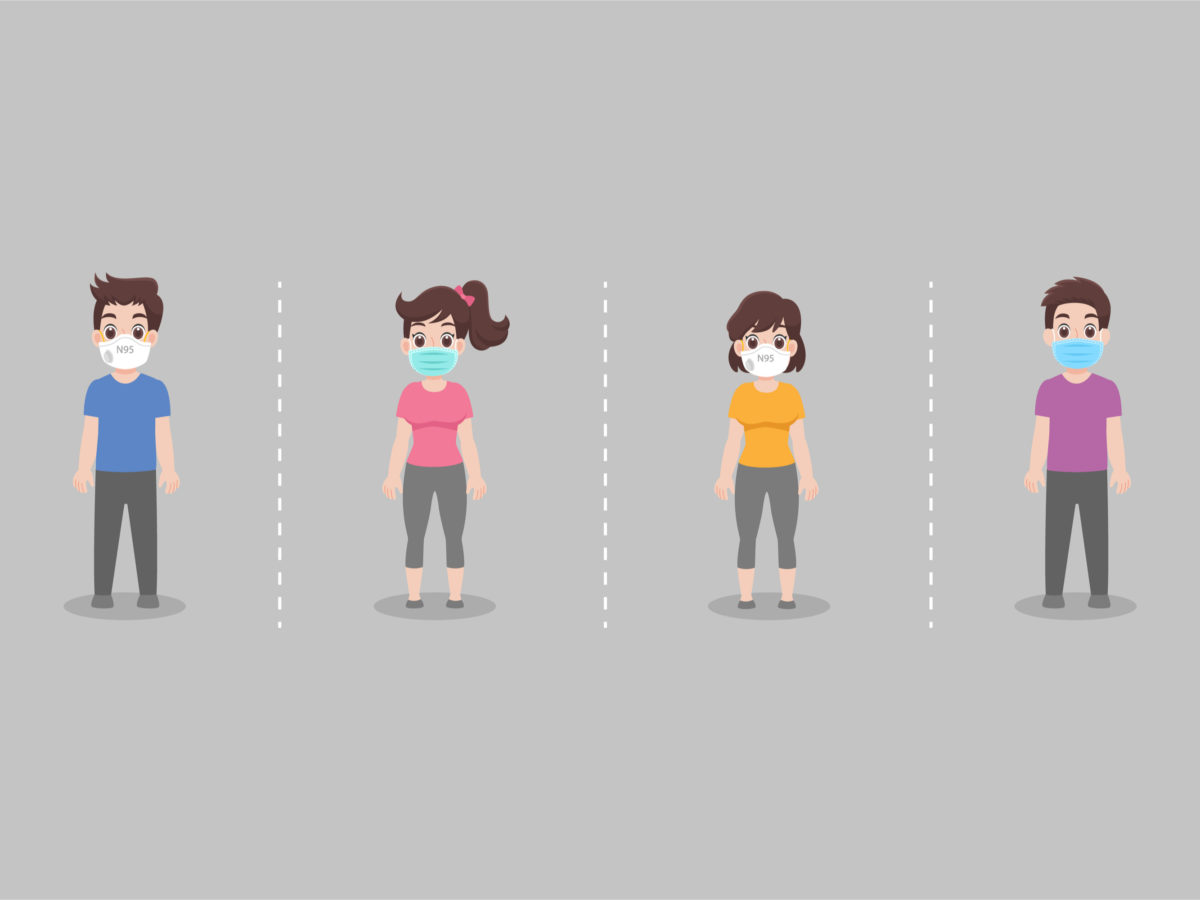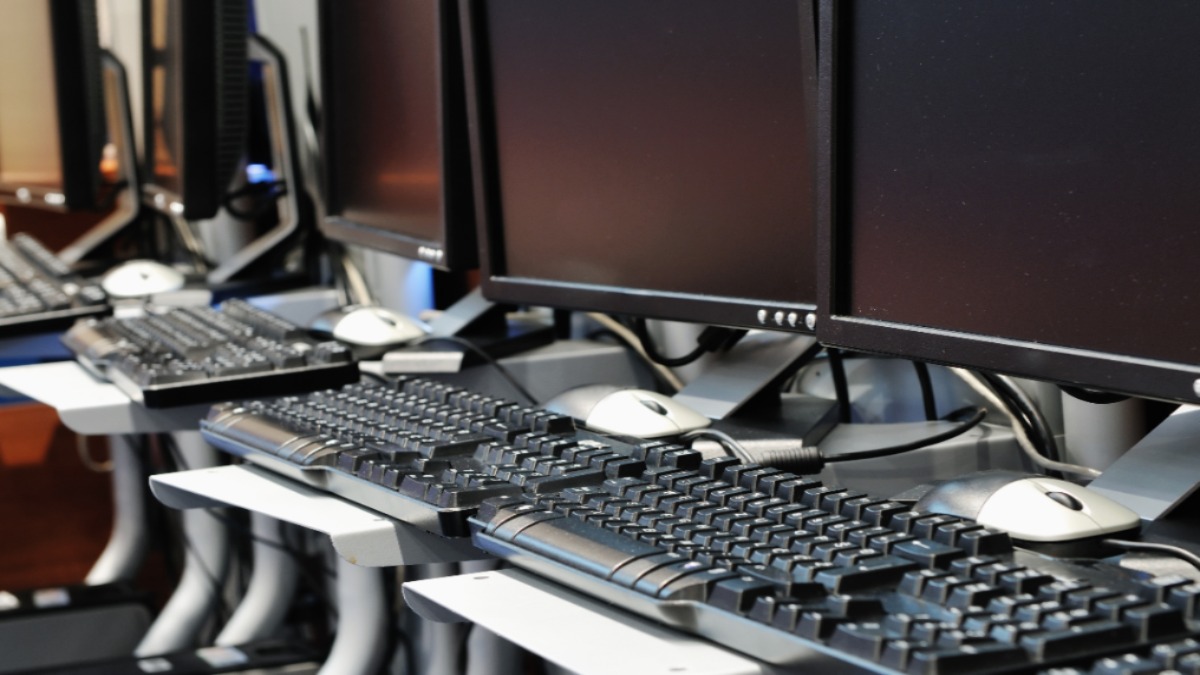Cook County Clerk Karen Yarbrough sits down with Lee Neubecker, President of Enigma Forensics to discuss the do’s and don’ts of early voting in the Cook County election and how to receive your mail-in ballot.
Early voting begins on October 19.
Lee Neubecker (LN): Hi, so I’m here again today with Karen Yarbrough, the Cook County Clerk, and we’re talking about the election that’s coming up. And today’s topic is specifically about early voting. Karen, thanks for being here.
Clerk Karen Yarbrough (CY): It’s always a pleasure, Lee.
LN: We’re actually seated roughly 12 feet apart from each other, practicing social distancing.
CY: Yes we are.
LN: And we can actually look at each other while we talk, which is nice.
CY: Yes we can.
LN: So tell us a little bit more about why people should consider early voting this election.
CY: You know Lee, I used to always pride myself in voting on election day. There’s something exciting about voting on election day. The camaraderie, seeing people you don’t see, you know, particularly every day. However, I got used to voting by mail because it’s convenient. And so people should, with this particular election, they need to make a plan and then plan their vote. I’ve already made that plan. And I plan to, I’ve already requested my ballot. I expect it in the mail any day now. And I plan to review my choices and I plan to drop it in a dropbox.
LN: Great. So when can you vote early in Cook County and the city of Chicago?
CY: So in Cook County, you can early vote on the 19th of October. There are some dates, October 7th, I believe for somebody who’s not registered to vote, they can actually register and vote on the 7th of October. In the city of Chicago, they will be starting that process on October first.
LN: So is there a website that people can go to if they want to get a–
Where to find more voting information
CY: I’m glad you asked Lee. All the information that you’ll ever want to know is at cookcountyclerk.com. Everything is there. Go to that website, click on elections, and you’ll see an array of information there that can answer each and every question that you ever have for elections for this particular election.
LN: And I know that the last election cycle that you told me about that, I actually did it. It only took less than, it was about a minute time–
CY: If it takes that long.
LN: And the ballot came and it was easy. What was nice is I had time to look up the different races. I could use my computer, I could do my research and be thoughtful with access to more than my smartphone. So I could actually read things while I was voting. So it was a nice experience.
CY: Easy peasy, that’s what I say. And, you know, you can give some time to actually looking at your selections. You can go online and research the candidates and make good solid choices.
LN: Yeah, and just so you know, my daughter voted for the first time in this election and we took her to early voting in person. And I asked could I early vote instead because I was there and he said I could but it would be a provisional ballot that wouldn’t get counted until later. So I thought that it seemed, at least, there was a check and balance. Your team knew that I had already requested a mail-in ballot and they had that checkup. But if I wanted to vote in person, I could have, you know, so like, if I lost my ballot, I could still vote. It’s just the provisional ballots don’t get counted until later.
CY: Yeah, and We want people to understand that process too because I’m suggesting to people to go ahead and order a ballot, go ahead, fill out the application. Like you said, it only takes a minute or so to do that. When your ballot comes, make a determination at that point do I plan to, you know, fill this out and mail it in or do I plan to drop it in our dropbox? Or do I plan to maybe do like some others who have suggested to me that they planned the, planned doing that would be their backup plan, just in case they can’t get to the polling place on election day. So I’m encouraging anybody and everybody to please, you know, order your ballot, get your ballot, do your research and obviously vote.
LN: So you can actually take your mail-in ballot and if you’re concerned that it’s going to be held up at the post office, you can drop by any polling place?
CY: We have, right now, over 60 early voting sites. And so if you’ve gotten your ballot and you want to drop it off at a dropbox, you can do that. You do not have to stand in line and we’ll have one of our election workers standing right there.
LN: So outside there’s actually–
Drop Boxes for Mail-In Ballots
CY: Inside, inside there will be a box that you can put your ballot in and there’ll be somebody right in front of that. You will not have to stand in line.
LN: Okay, so what if someone lives outside of Cook County?
CY: Somebody who lives outside of Cook County, you mean that maybe somebody in the military. That’s what absentee voting is all about. And you know, we’ve been doing that since the Civil War. Complete your ballot, send in for your ballot, complete your ballot and mail it in.
LN: Do you have any concerns about people voting more than the once?
CY: We do not because we put a number of things in place to make sure that kind of thing does not happen. One thing, we have election judges that, you know, they’re sworn in and they review every single signature. You know, you have to sign, so they will do that. Each person has a identification number, okay, that’s only germane to you. So that way we know it’s you. So if Mickey Mouse shows up, Mickey Mouse is not going to be able to vote because Mickey Mouse does not have this voter code that we have. Finally, you know, we have a, we’ve just gone through every idea and had people to kind of test, to make sure that we are ready for the November election to make sure that people, you know, do the right thing. And that’s what we’re telling them to do. Do the right thing. At the end of the day, too, we also do, we check out 5% of the ballots to make sure, you know, after the election, that they’re right on target.
LN: And so finally, when is the last time, the last date that you can request, that you can actually go in and vote early?
CY: The last time that you can go in and vote early actually is November 3rd which is election day, okay, They can vote that day, but the day before. So that would be November 2nd. Don’t wait and do it then. Do it early.
LN: Well, thanks a bunch for being on the show. I look forward to talking to you again soon.
CY: Thank you.
LN: And vote.
CY: Oh, absolutely, vote.








